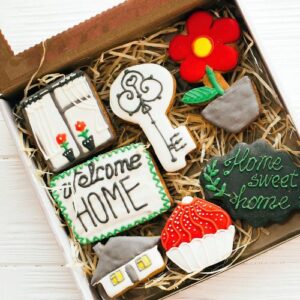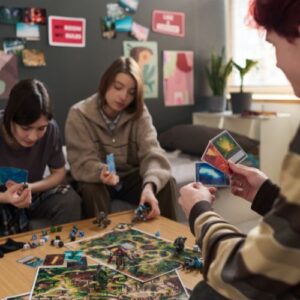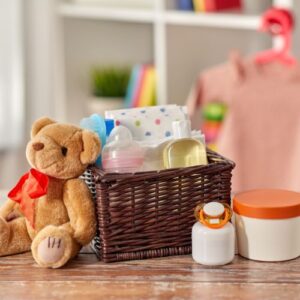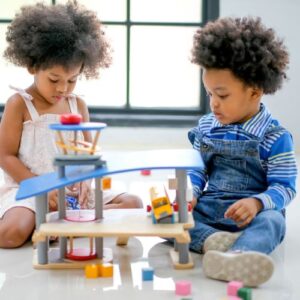Things to Buy a Foster Child to Help Them Feel at Home
When you are choosing things to buy for a foster child, it is important to remember that children in foster care face unique challenges. Many foster care placements result from difficult circumstances, and thoughtful gifts can help address these challenges by bringing comfort and hope. Foster kids often experience transitions between homes, school, and families, and thoughtful gifts can help provide comfort, security, and a sense of belonging. A caring foster parent or foster family can use gifts to show children in foster care they are valued, supported, and loved.
READ MORE: Top Thank You Gifts for Foster Parents: Heartfelt Ideas to Show Appreciation
Gifts can also help foster children cope with past experiences, manage anxiety, and feel confident in their new foster home. Whether it is Christmas season, birthdays, or home visits, the right gift can make a real difference in a child’s life. Our mission is to support foster children through thoughtful gifts, helping to create positive change and brighten their lives.
Building Relationships Through Gifts

Consider gifts that encourage play, learning, or family bonding. It is important to be present and nurture relationships in the current moment, making each child feel valued and supported. Gifts that bring siblings or other children together support a positive fostering experience and nurture relationships within the family and community.
Providing Comfort and Security
Comfort items are essential gifts for children living in foster care. Stuffed animals, cozy blankets, and sensory toys help kids adjust to their new foster home. When choosing comfort items, it is important to select options that are appropriate for different ages, ensuring that each child receives something suitable for their stage of development.
For babies, including baby items such as soft toys, plush animals, and baby-specific supplies, provides reassurance and comfort for infants entering foster care. Toddlers and teens benefit from weighted blankets or stress-relief items that promote calmness. By giving children in foster care these gifts, foster parents help kids feel safe, supported, and valued in their new environment, while being aware of individual needs, such as allergies or sensitivities, when selecting comfort items.
Meeting Practical Needs

Gifts like lunchboxes, school kits, and shoes allow kids to carry their stuff and belongings independently, supporting self-esteem and confidence. Practical gifts can help cover essential needs that may not be fully met by foster care stipends. Items like storage bins or laundry baskets can serve multiple purposes in a foster home, acting as both storage solutions and functional pieces. Practical gifts also make life easier for foster parents, allowing them to focus on supporting relationships, emotional care, and the overall well-being of foster children.
Supporting Emotional Well-being
Kids in foster care often have past experiences that can affect their emotional health. Choosing gifts that address developmental issues and promote creativity helps children build coping skills. Be cautious with gifts that have words or phrases, as these can sometimes be confusing or hurtful for foster children.
Art supplies, journals, and craft kits allow foster children to express themselves while fostering hope, joy, and personal growth. Supporting emotional well-being is an ongoing course, and it is important to have patience as children work through emotional challenges. Sensory toys or stress-relief comfort items are important for teens and younger children to navigate transitions successfully. With the right support, foster children will eventually develop coping skills and emotional resilience. These gifts contribute to a positive fostering experience and help children in foster care thrive.
Gift Ideas for Every Age
- Babies: Soft stuffed animals, blankets, sensory toys, and age-appropriate snacks.
- Toddlers: Puzzles, interactive toys, educational playsets, books, and non-allergenic snacks.
- School-age kids: Art supplies, educational games, sports items, school essentials, and culturally sensitive snacks.
- Teens: Gift cards, electronics, journals, event tickets, fun experiences, and snacks suitable for teens.

Easter baskets are sometimes used as containers for welcome gifts due to their festive association and ability to hold various items, but other options may be more practical for storage and everyday use.
Generally, gifts that provide comfort, a sense of normalcy, and ownership are most beneficial for foster children. Selecting gifts based on age, interests, and developmental stage ensures kids feel appreciated and connected to their new foster family.
Creating a Sense of Belonging
Foster children benefit from gifts that help them feel included in their foster family. Personalized items like photo albums, engraved keepsakes, or name-labeled backpacks reinforce that kids are valued and their story matters. These personalized gifts also help foster children feel they truly belong in their new home.
Documenting memories, such as taking photos, is important so that foster children can remember the time they lived in the foster home. Thoughtful gifts can positively impact the daily lives of foster children, providing comfort and stability. It is important to acknowledge that foster children often lose familiar belongings or routines when entering care, and these gifts can help ease this transition.
Board games, activity sets, and arts projects encourage family bonding and help kids feel a sense of belonging and inclusion. Involving foster children in the gift selection process gives them ownership and strengthens their connection to the foster family.
Special Considerations for Foster Children


Creating a safe and welcoming home environment is essential for every foster kid. When the talk turns to personal backgrounds or family history, be mindful and answer sensitive questions with care, as answering can be difficult for foster children. Supporters and foster parents may have decided on certain gifts or approaches after careful consideration, always aiming to provide comfort and stability.
Conclusion
Choosing the right things to buy for foster kids can impact their lives in meaningful ways. Gifts don’t need to cost a lot of money. They just need to provide comfort, meet practical needs, or encourage family bonding. They can also support emotional well-being in order to positive experience and help a child feel at home in their new world.



